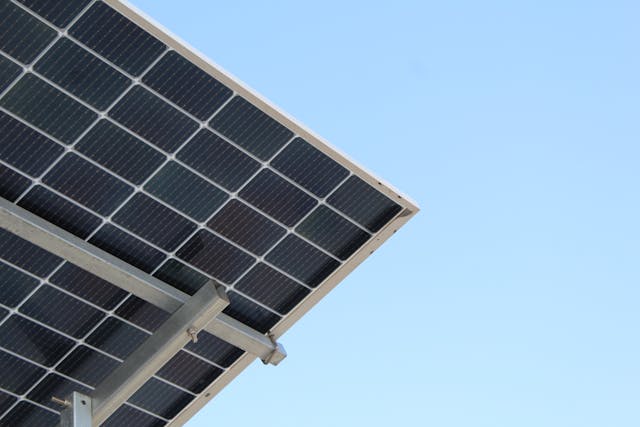Solar energy is becoming an increasingly popular choice for homeowners looking to reduce their carbon footprint and save on energy bills. For those living in apartments or homes with limited outdoor space, a balcony solar panel kit offers an ideal solution. These kits are designed to be compact, easy to install, and efficient, making them perfect for urban dwellers. However, choosing the right balcony solar panel kit can be a daunting task. This comprehensive guide will help you navigate the options and make an informed decision.
Understanding Balcony Solar Panels
Before diving into the selection process, it’s essential to understand what balcony solar panels are. Unlike traditional solar panels that are installed on rooftops or large ground areas, balcony solar panels are smaller and designed to be mounted on balconies, railings, or walls. They are an excellent option for those who want to harness solar energy without the need for extensive space.
Benefits of a Balcony Solar Panel Kit
- Space Efficiency: Balcony solar panel kits are designed for limited spaces, making them perfect for apartment dwellers and those with small outdoor areas.
- Ease of Installation: Most kits are designed for DIY installation, meaning you won’t need to hire professionals, saving you money on installation costs.
- Cost Savings: By generating your own electricity, you can reduce your energy bills significantly.
- Environmental Impact: Using solar energy reduces your reliance on fossil fuels, helping to decrease your carbon footprint.
Additional Benefits
- Energy Independence: With a balcony solar panel kit, you can reduce your dependence on the grid, making your home more resilient during power outages.
- Low Maintenance: Balcony solar panels typically require minimal maintenance. Regular cleaning and occasional inspections are usually sufficient to keep them functioning efficiently.
- Increased Property Value: Installing solar panels can increase the value of your property. Prospective buyers may find the energy savings and environmental benefits attractive.
Key Considerations When Choosing a Balcony Solar Panel Kit
- Power Output
The power output of a balcony solar panel kit is one of the most critical factors to consider. It determines how much electricity the panels can generate. Power output is measured in watts (W). To determine the appropriate power output for your needs, consider the following:
- Energy Consumption: Calculate your average daily energy consumption. This can be found on your electricity bill.
- Panel Efficiency: Higher efficiency panels produce more power in a smaller area. Look for panels with high-efficiency ratings.
- Size and Design
The size and design of the balcony solar panel kit should fit the available space on your balcony. Measure the area where you plan to install the panels and choose a kit that fits within these dimensions. Additionally, consider the aesthetic appeal of the panels. Some kits come with sleek designs that can complement the look of your balcony.
- Mounting Options
Different balcony solar panels come with various mounting options. Common mounting types include:
- Railings: Panels can be attached to balcony railings using brackets.
- Walls: Some kits are designed to be mounted on walls, offering a more permanent solution.
- Free-Standing: These panels come with stands that can be placed on the balcony floor.
Choose a mounting option that best suits your balcony’s structure and your personal preference.
- Battery Storage
Consider whether you want a balcony solar panel kit with battery storage. A battery storage system allows you to store excess energy generated during the day for use at night or during cloudy periods. This can increase your energy independence and further reduce your reliance on the grid.
Types of Batteries
There are different types of batteries to consider:
- Lead-Acid Batteries: These are affordable but have a shorter lifespan and lower efficiency compared to other types.
- Lithium-Ion Batteries: These are more expensive but offer higher efficiency, longer lifespan, and better performance.
- Flow Batteries: These are durable and suitable for large-scale storage, but they are often more costly and complex.
- Inverter Quality
The inverter is a crucial component of the solar panel system. It converts the direct current (DC) generated by the panels into alternating current (AC), which is used by most household appliances. Look for a high-quality inverter that is efficient and durable. Some balcony solar panel kits come with microinverters attached to each panel, which can increase overall system efficiency.
- Warranty and Durability
A balcony solar panel kit is a significant investment, so it’s important to choose a kit that comes with a solid warranty and is built to last. Look for panels with warranties of at least 20-25 years. Additionally, check for weather-resistant and durable materials that can withstand various environmental conditions.
- Brand Reputation
Research the reputation of the brands you are considering. Read customer reviews and look for feedback on the performance and reliability of the balcony solar panels. Reputable brands are more likely to offer quality products and good customer service.
- Cost and Financing
While cost is a significant factor, it’s important to consider the long-term savings and benefits of investing in a balcony solar panel kit. Some options to consider include:
- Upfront Purchase: Buying the kit outright.
- Financing Plans: Some companies offer financing options to spread the cost over time.
- Government Incentives: Look for any government rebates or incentives for installing solar panels, which can reduce the initial cost.
Step-by-Step Installation Guide
Once you’ve chosen the right balcony solar panel kit, follow these steps for installation:
- Unbox and Inspect: Carefully unbox the kit and inspect all components for any damage.
- Choose Mounting Location: Identify the best location on your balcony for maximum sun exposure.
- Install Mounting Brackets: Secure the mounting brackets to the railing, wall, or floor as per the kit’s instructions.
- Mount the Panels: Attach the solar panels to the mounting brackets securely.
- Connect the Inverter: Follow the instructions to connect the panels to the inverter.
- Set Up Battery Storage: If your kit includes battery storage, set it up according to the manufacturer’s guidelines.
- Test the System: Turn on the system and check that everything is working correctly. Monitor the power output to ensure optimal performance.
Safety Tips
- Use Proper Tools: Ensure you have the necessary tools and follow the manufacturer’s guidelines.
- Avoid Wet Conditions: Install the panels in dry weather to avoid electrical hazards.
- Secure Connections: Double-check all connections to prevent loose wires or components.
Maximizing the Efficiency of Your Balcony Solar Panels
To get the most out of your balcony solar panel kit, consider these tips:
- Regular Cleaning: Keep the panels clean from dust and debris to maintain efficiency.
- Optimal Angle: Adjust the angle of the panels to capture the most sunlight throughout the year.
- Shade Management: Ensure that the panels are not shaded by nearby buildings or objects, as this can significantly reduce power output.
Seasonal Adjustments
- Summer: Adjust the panels to a lower angle to capture the high sun.
- Winter: Tilt the panels to a steeper angle to maximize sunlight exposure during shorter days.
Monitoring and Maintenance
- Regular Inspections: Periodically inspect the panels and connections for any signs of wear or damage.
- Performance Monitoring: Use monitoring tools to track the performance and efficiency of your system. Some systems come with apps or software that provide real-time data.
Conclusion
Choosing the right balcony solar panel kit for your home involves careful consideration of various factors, including power output, size, design, mounting options, battery storage, inverter quality, warranty, and brand reputation. By taking the time to evaluate these aspects, you can select a kit that meets your energy needs and fits your balcony space perfectly. With the right balcony solar panels, you can enjoy the benefits of renewable energy, reduce your carbon footprint, and save on electricity bills, all from the comfort of your urban home.
FAQs: Choosing the Right Balcony Solar Panel Kit
- What is a balcony solar panel kit?
A balcony solar panel kit is a compact, easy-to-install solar energy system designed for limited spaces like balconies. It typically includes solar panels, mounting brackets, an inverter, and sometimes a battery storage system. These kits are ideal for apartment dwellers and those with small outdoor areas who want to harness solar energy without needing extensive space.
- How do I determine the power output I need?
To determine the appropriate power output for your balcony solar panel kit, consider your average daily energy consumption. This information can be found on your electricity bill. Calculate how much of your daily energy usage you want to offset with solar power and choose a kit with a corresponding power output. For example, if you consume 5 kWh per day and want to cover half of that with solar energy, look for a kit that produces around 2.5 kWh per day.
- Can I install a balcony solar panel kit myself?
Yes, most balcony solar panel kits are designed for DIY installation. They come with detailed instructions and all the necessary components for mounting and connecting the system. However, if you are not comfortable with electrical work, it’s advisable to consult a professional to ensure safety and proper installation.
- Do balcony solar panels work in all weather conditions?
Balcony solar panels are designed to work in various weather conditions, but their efficiency can be affected by factors such as cloud cover, shading, and seasonal changes. While they will still generate power on cloudy days, the output will be lower compared to sunny days. Regular maintenance, such as cleaning the panels and ensuring they are free from obstructions, can help maximize their efficiency.
- What are the benefits of having battery storage with my balcony solar panel kit?
Battery storage allows you to store excess energy generated during the day for use at night or during cloudy periods. This can increase your energy independence and reduce reliance on the grid. It also provides a backup power source during power outages, ensuring a continuous supply of electricity for essential devices and appliances.
- How long do balcony solar panels last?
Balcony solar panels typically come with warranties ranging from 20 to 25 years. With proper maintenance, they can last even longer. The inverter and battery components may need to be replaced sooner, usually within 10-15 years, depending on their quality and usage.
- How can I maximize the efficiency of my balcony solar panels?
To maximize the efficiency of your balcony solar panels, follow these tips:
- Regular Cleaning: Keep the panels clean from dust and debris.
- Optimal Angle: Adjust the angle of the panels to capture the most sunlight throughout the year.
- Shade Management: Ensure the panels are not shaded by nearby buildings or objects.
- Seasonal Adjustments: Tilt the panels to lower angles in summer and steeper angles in winter to optimize sunlight exposure.
- Are there any government incentives for installing balcony solar panels?
Yes, many governments offer incentives, rebates, or tax credits to encourage the installation of solar panels. These incentives can significantly reduce the initial cost of your balcony solar panel kit. Check with your local government or energy authority to find out what incentives are available in your area.
- What maintenance do balcony solar panels require?
Balcony solar panels require minimal maintenance. Regularly clean the panels to remove dust, dirt, and debris. Inspect the mounting brackets, connections, and inverter periodically for any signs of wear or damage. Using monitoring tools or software can help track the system’s performance and identify any issues early on.
- Can balcony solar panels increase my property value?
Yes, installing balcony solar panels can increase your property value. Prospective buyers often find the energy savings and environmental benefits of solar panels attractive, making your property more appealing in the real estate market.

